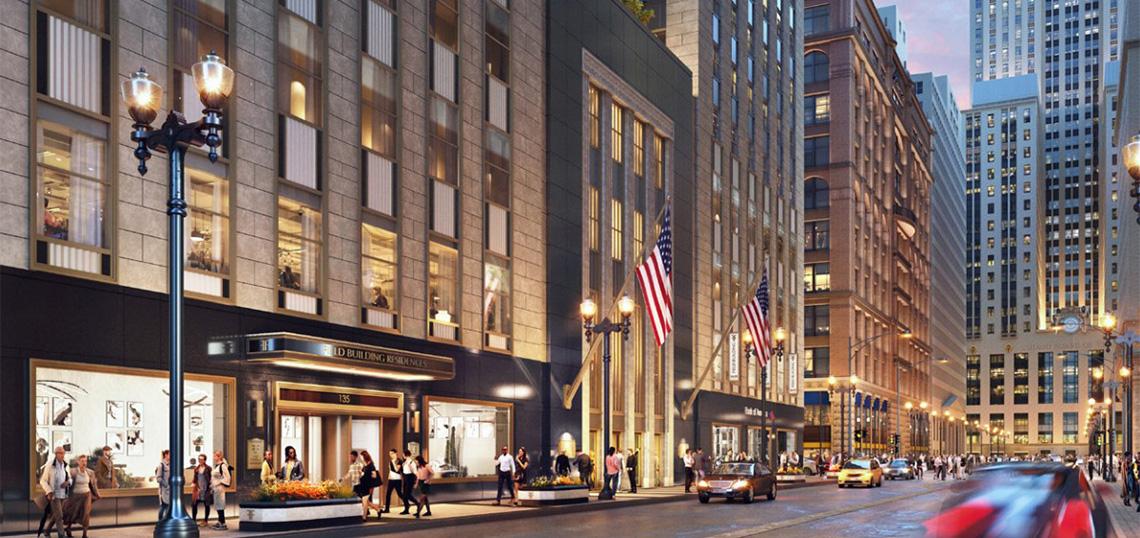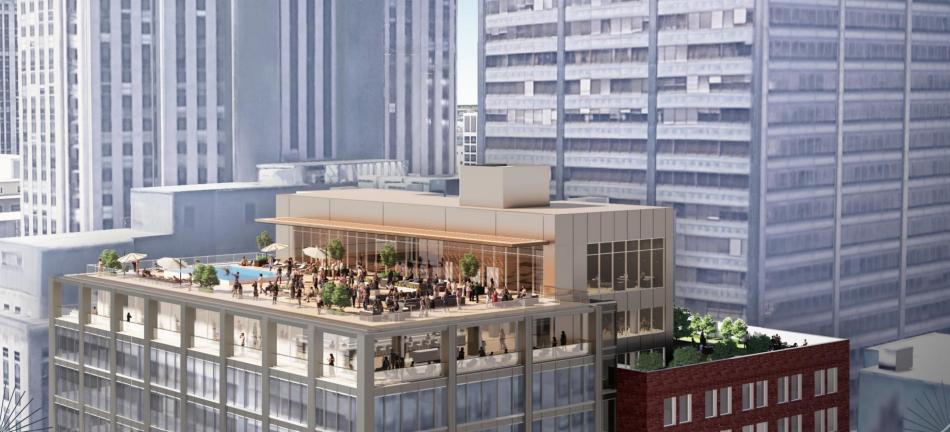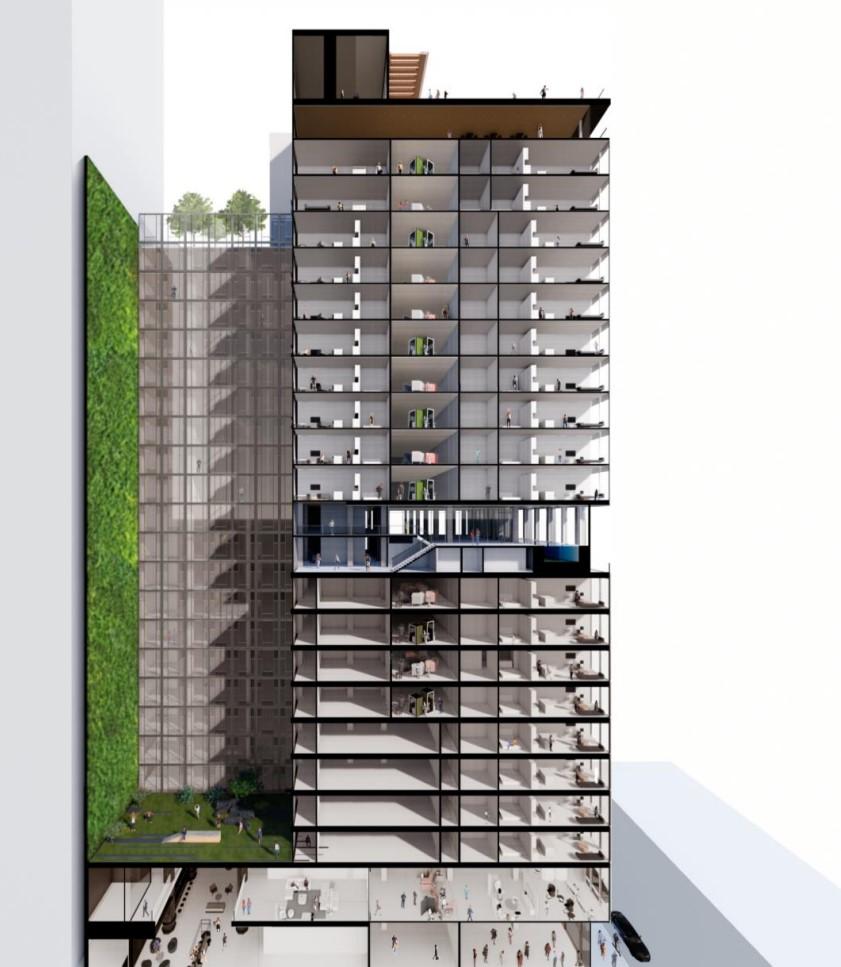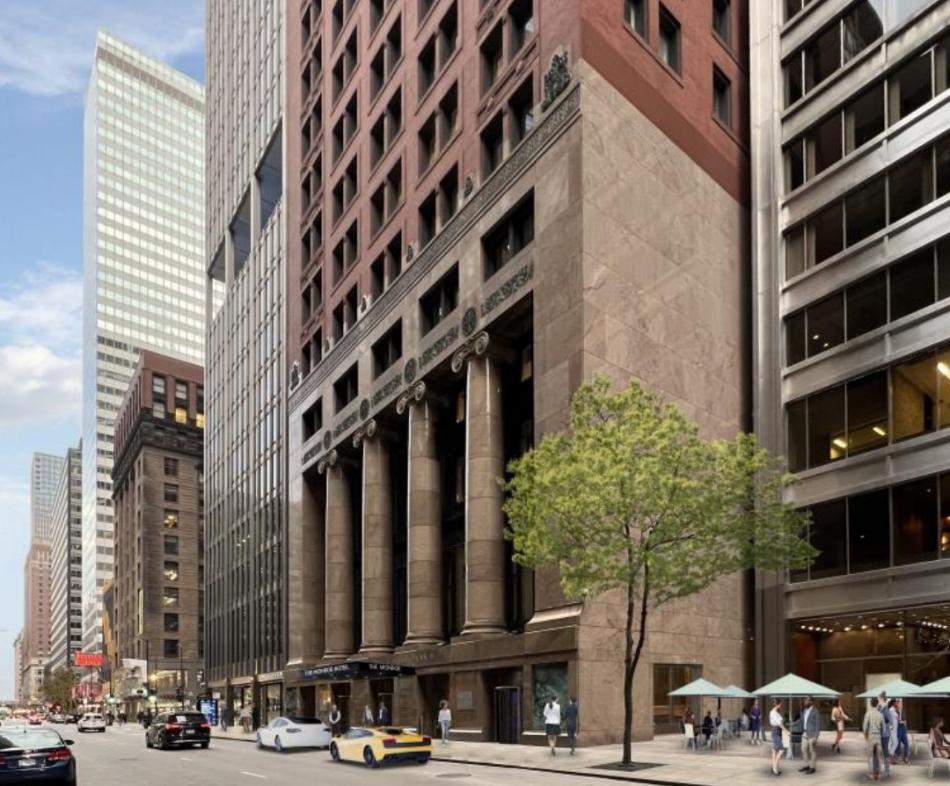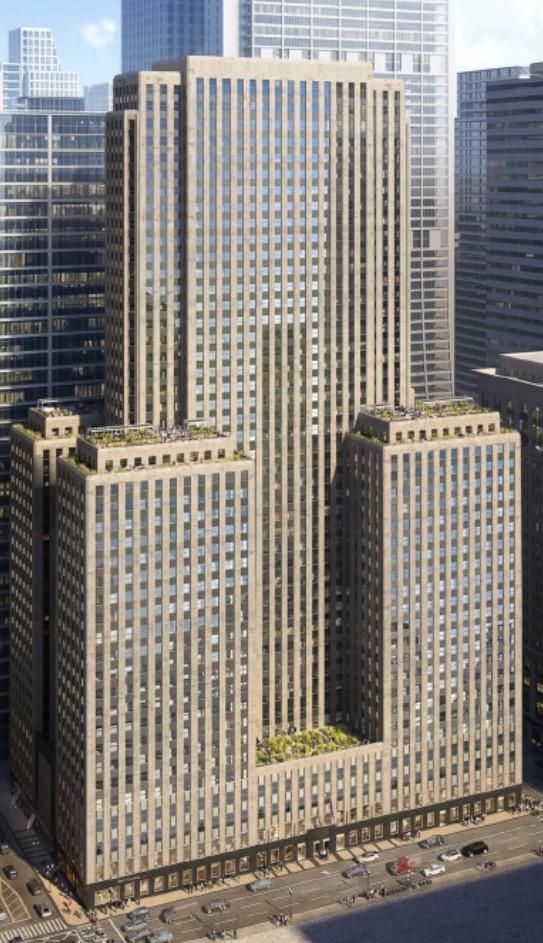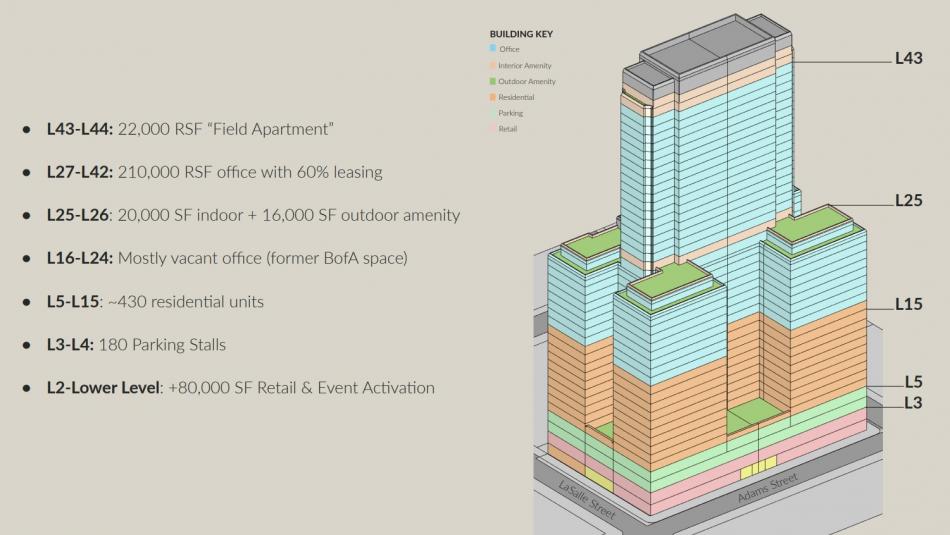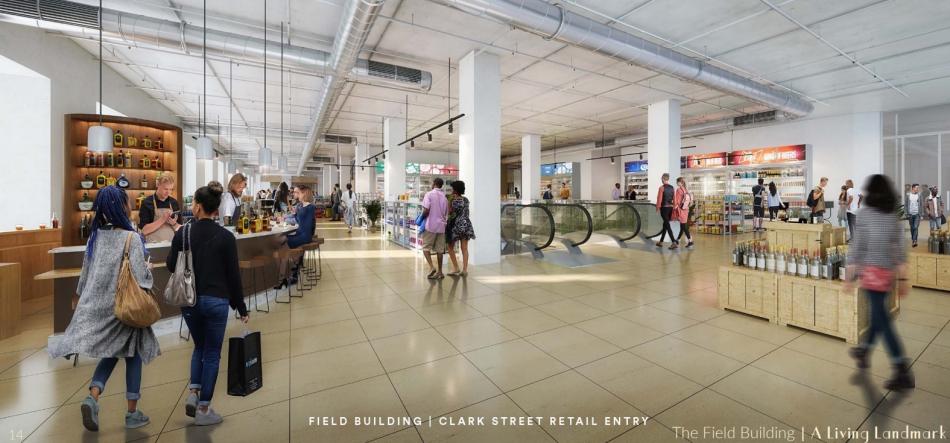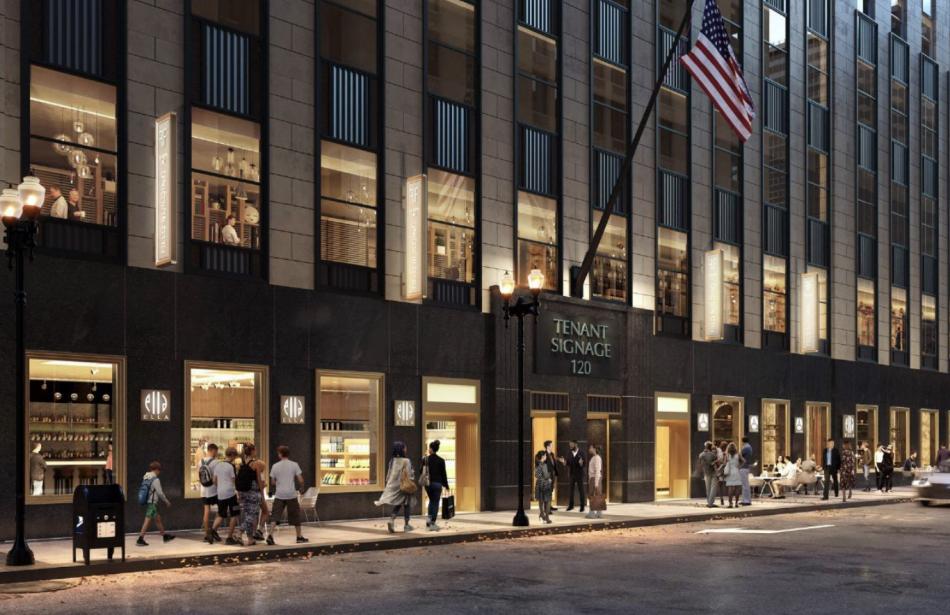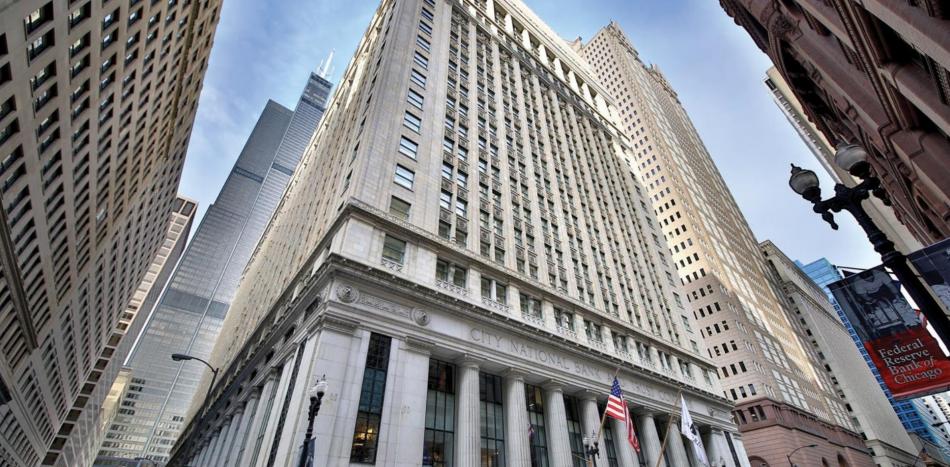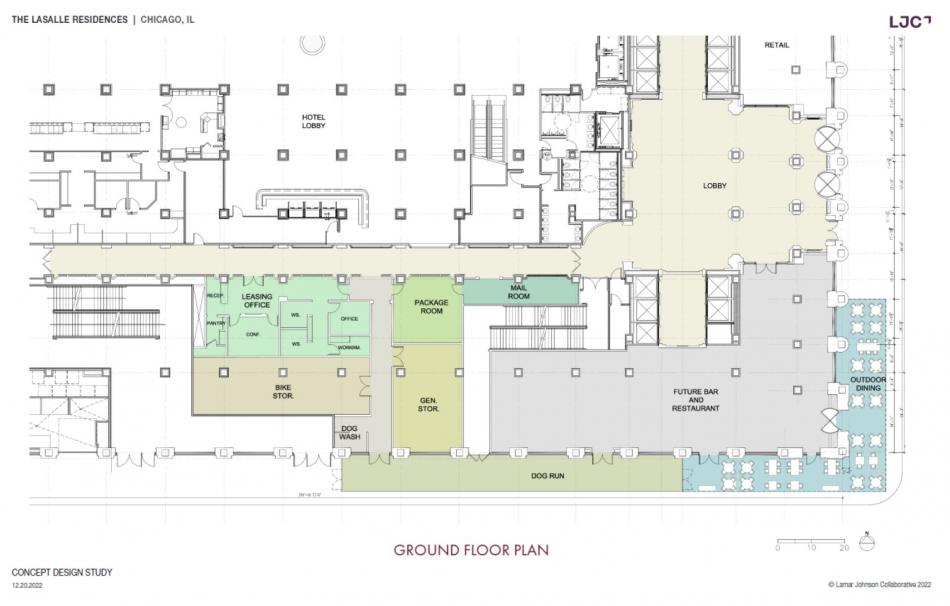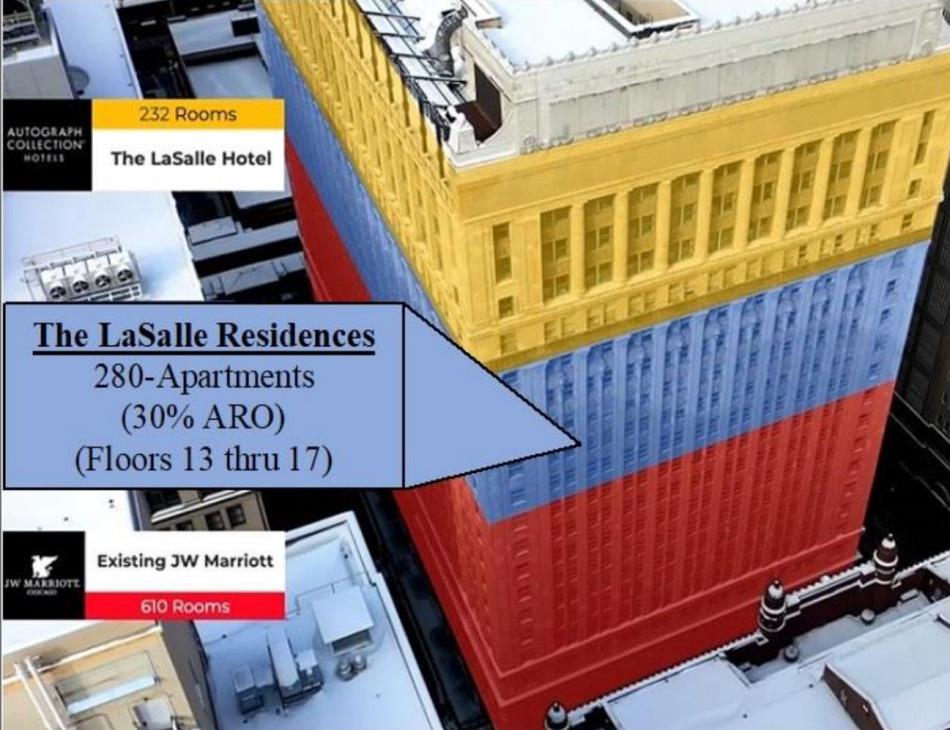The City of Chicago has announced three finalists to get city funding through the LaSalle Reimagined initiative. "Today's announcement represents the culmination of months of work by the Mayor's Office to solicit, review, and identify IFP submissions that will reimagine LaSalle Street," Mayor Lightfoot said.
According to the city, each finalist meets the IFP’s objectives to revitalize an underperforming historic property, provide 30% of the total housing units at affordable levels, and create neighborhood-oriented building amenities that contribute to a dynamic, mixed-use, downtown environment. There are presently no affordable apartments on or near LaSalle within the Loop.
Planned for 1.6 million square feet of space, the winning developments include:
The Monroe Residences & Hotel at 111 W. Monroe
Planned by Prime/Capri Interests, LLC, which is a joint venture of affiliates of The Prime Group, Inc. and Capri Investment Group, the upper floors of the building will be converted into 349 apartments, with a mix of 182 studios, 125 one-beds, and 42 two-beds. 105 of these will be set aside as affordable at an average of 60% AMI. On the ground floor, hotel guests will enter through the historic lobby off of W. Monroe St, with the residential entry located adjacent to the hotel entrance. A new fine dining restaurant is planned for the lobby at the corner of N. LaSalle St and W. Monroe St. 130 parking spaces will be built underground for residents.
With Stantec on board for the design, the project will carve out a 60 foot by 70-foot atrium to allow for natural light to reach the new apartments and hotel rooms without altering any street-facing facades. At the middle of the building, two floors will be turned into a world-class spa and fitness center with an indoor pool, golf simulator, and fitness center. The roof level will be reactivated by reopening the original Monroe Club as an amenity for residents and hotel guests. The former mechanical penthouse will become a restaurant, with the outdoor deck including a pool.
Set to cost $180 million, the project would be funded with $18 million in sponsor equity, $40 million in TIF funding, $14 million LIHTC equity, $20 million historic tax credits, and $88 million in tax-exempt housing bonds. The team could begin construction in 12 months, with a 26-month construction timeline. First units would become available in early 2026, with full occupancy set for Summer 2026. A separate, 226-key hotel project would proceed simultaneously within the building’s lower floors.
--
The Field Building at 135 S. LaSalle
Proposed by Riverside Investment and Development and AmTrustRE, the project would convert 750,000 square feet of empty space into 430 residential units, split into 254 studios, 116 one-beds, and 60 two-beds. With 30%, or 129, of them set aside as affordable, the residential component would be complemented by 80,000 square feet of retail space at the base of the building.
On the ground floor, residential lobbies will be located at S. LaSalle St and S. Clark St, north of the historic main arcade, with retail space occupying the south side of the building fronting W. Adams St. The development team is targeting a grocery tenant to take about 15,000-25,000 square feet of the retail space. Above the retail space, floors three and four would hold 180 parking spaces hidden by new interior walls setback from the exterior windows.
With Solomon Cordwell Buenz on board as the architect, the building will receive a full restoration of the facade, restoration of the arcades at the base of the building, and windows will be replaced. Vinci Hamp Architects will be consulting on the historic portions of the redesign.
Set to cost $258 million, the project would be funded with $115 million in TIF, $34 million in Historic Tax Credits, $30 million from a sponsor/3rd party, and $78 million in debt. With the proposal moving forward, design would take 9-12 months, then construction would begin in 2024, with the building opening to residents in Q1 2025.
--
The LaSalle Residences at 208 S. LaSalle
Planned by The Prime Group, the proposal will convert the middle chunk of floors into 280 residential units. With Lamar Johnson Collaborative and Lucien LaGrange Studio working on the project, floors 13 through 17 will be the ones renovated as part of this proposal. Set to produce 280 apartments, 30% of them will be set aside as affordable. The mix includes 111 studios, 120 one-beds, and 49 two-beds. On the ground floor, residents will enter through a lobby facing S. LaSalle St, sharing with the new hotel. A dog run and dog spa will be included, with a bike storage room also included.
Originally acquired in 1996, The Prime Group has already converted the lower 12 floors into a JW Marriott Hotel and just opened floors 18-22 as The LaSalle Hotel with 232 keys. The building was Burnham’s last design before he died, built in 1914 for the Continental and Commercial National Bank.
Set to cost $130 million, the rehab would be funded by $74 million in tax-exempt housing bonds, $10 million in Low Income Housing Tax Credits, $33 million in TIF funding, and just $13 million in sponsor equity. Since The Prime Group already owns the building, they would look to start construction by the end of 2023. With W.E. O’Neil on board for construction, the team expects an 18–20-month construction timeline, with first units set to open Summer 2025.
--
The nine proposals were evaluated for alignment with the IFP goals, potential catalytic impact and economic feasibility, among other criteria, including efforts to exceed minimum diversity requirements for construction teams.
The selected finalists will proceed to the next phase of the City's standard review, underwriting, and approval processes, including evaluations by the Community Development Commission, Commission on Chicago Landmarks and City Council. TIF requests are tentative until approved by the City Council.
Given the IFP’s success and stakeholder interest in a more equitable and resilient downtown, DPD and DOH are making additional LaSalle Central TIF funding available for adaptive reuse projects that provide 30% housing affordability at an average 60% AMI, offer new neighborhood-oriented public amenities, and exceed City minimums for minority and women-owned participation, among other requirements.





